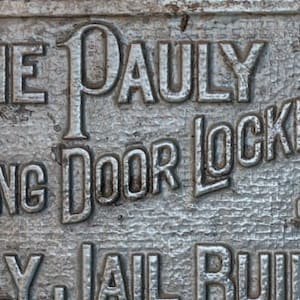over my dead body: Idiom Meaning and Origin
What does ‘over my dead body’ mean?
The idiom over my dead body is used to express strong opposition or refusal to allow something to happen under any circumstances.

Idiom Explorer
The idiom "scared to death" means to be extremely frightened or afraid to the point where it feels like one could die from fear.
The idiom "put a gun to someone's head" means to exert extreme pressure or force on someone to make them do something against their will.
The idiom "pass away" means to die, typically used in a more gentle or euphemistic way. It implies the transition from life to death, suggesting a peaceful or dignified departure.
The idiom "over the top" means to be excessive or exaggerated in behavior, action or expression.
The idiom "over and over again" means repeatedly doing or experiencing something.
The idiom "over a barrel" means to be in a difficult or unfavorable situation, with no control or ability to escape. It suggests being helpless or at the mercy of someone else's power or authority.
The idiom "on one's deathbed" refers to someone being in the final stages of their life, typically when they are fatally ill or dying. It implies that the person is very close to death, often used to emphasize the seriousness or urgency of a situation.
The idiom "no ways" is used to express strong disbelief or refusal towards something. It indicates a firm stance or disagreement and is often used as a response to a suggestion or proposal.
The idiom "no way" is used to show strong disbelief or refusal towards something. It expresses a complete lack of possibility or chance for something to occur or be true.
Defying Fate
The idiom "over my dead body" is commonly used in the United States to express strong opposition or resistance to something. It carries a sense of defiance and determination, suggesting that the speaker would never allow the thing mentioned to happen, even if it means sacrificing their life.
The origin of this idiom is somewhat unclear, but it likely draws upon ancient beliefs and traditions that assigned great importance to the sanctity of the human body, even after death. In ancient burial customs, the deceased's body was considered sacred and protected, and interfering with it was seen as a grave offense. Therefore, the phrase "over my dead body" could have originally been a way to express the speaker's unwavering commitment to protect their body, even in the afterlife.
Another theory suggests that the idiom may have its roots in dramatic literature and theater. For example, in Shakespeare's play "Julius Caesar," the character Brutus uses the phrase "over my dead body" to refuse betrayal or falsehood. The play was written in the late 16th century, and it is possible that the phrase gradually entered popular usage through the influence of Shakespeare's works.
The idiom "over my dead body" has also gained prominence through its frequent appearance in British and American literature over the years. The use of dramatic language and expressions to convey strong emotions and thoughts has always been a characteristic of literary works, and idioms like "over my dead body" have become embedded in the larger cultural lexicon as a result.
Today, the idiom "over my dead body" is commonly used in everyday language to vehemently oppose an action, decision, or intention. It is often used humorously or with a touch of hyperbole to convey a strong and resolute stance against something. The phrase has become firmly established as a well-known and readily understood expression in both spoken and written communication, contributing to the richness and diversity of the English language.
not on your life is another idiomatic expression with a similar meaning to "over my dead body." It is used to convey a strong refusal or denial of something, emphasizing that the speaker would never allow it to happen. While "over my dead body" carries a sense of determination and sacrifice, "not on your life" emphasizes the speaker's absolute rejection of a situation or proposal.
The idiom "not be caught dead" is also related to "over my dead body." It is used to express a strong aversion or unwillingness to be associated with something, often due to embarrassment or social stigma. The phrase implies that the speaker would rather die than be seen or involved in the thing mentioned. While "over my dead body" focuses on opposing an action, "not be caught dead" focuses on avoiding a situation altogether.
The idiom "over my dead body" is an expressive phrase that encapsulates a sense of unwavering resistance and determination. Its exact origin remains uncertain, but it likely draws upon ancient beliefs regarding the sanctity of the human body and may have been popularized through dramatic literature and cultural references. As an enduring idiomatic expression, it continues to be used to convey strong opposition and refusal in both formal and informal contexts, showcasing the power of language in capturing human emotions and attitudes.
Example usage
1. "You can have my car over my dead body!" This sentence uses the idiom *over my dead body* to express strong opposition or refusal to give up possession or control of the car.
2. "I will let you marry my daughter when pigs fly, over my dead body!" In this example, the idiom is used to convey a firm refusal or refusal to allow someone to marry their daughter.
3. "I will never let my sister join that dangerous gang, not until they go through me, over my dead body!" Here, the idiom emphasizes the extreme determination to prevent someone from joining a dangerous gang.
More "Opinion" idioms



